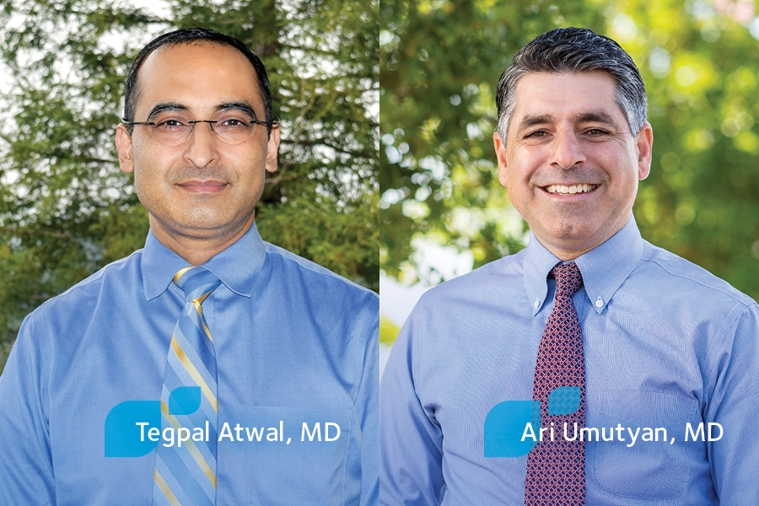Don’t want to get your colonoscopy? These two doctors urge you to think again
Mar 25, 2021

Colon cancer prevention is all about screenings. And although many people shy away from getting their colonoscopy, it’s a crucial component of taking care of your health. Experts estimate that, each year, around50,000 peopledie of colorectal cancer. In many cases, these deaths could have been prevented with appropriate screenings and interventions.
“There’s a reason we call colon cancer ‘the silent killer,’” saysAri Umutyan, MD, medical oncologist at the Martin-O’Neil Cancer Center at Adventist Health St. Helena. “Colon cancer starts as very small growth, but if a patient comes to the cancer center once it is much more developed, it can unfortunately be very serious.”
An essential part of preventive healthcare
Colon cancer screenings are essential preventive healthcare screenings—they are just as important as mammograms, prostate exams and annual check-ups. “The gold-standard, highest resolution method for colon cancer screening is a colonoscopy,” explainsTegpal Atwal, MD, gastroenterologist with Adventist Health St. Helena. “Not only does a colonoscopy detect pre-cancerous polyps, but you can actually take action during the screening to remove and treat them immediately.”
Some people opt for at-home colon cancer screenings, such as fecal immunochemical tests (FIT) or Cologuard® testing. While these tests may have lower rates of accuracy than a colonoscopy, they are another important early detection tool. “Even though we know expert guidelines recommend colonoscopies, we know that people struggle to find time to schedule a primary care appointment, let alone reach out to a gastroenterologist,” Dr. Atwal says. “These at-home options are useful for making colon cancer prevention a part of the conversation with your healthcare provider.”
How can I prevent colon cancer?
One of the most impactful ways you can prevent colon cancer is to talk openly with your healthcare provider about your digestive health. “These aren’t always topics we’re the most comfortable with,” Dr. Atwal says. “But it’s really important to be open and proactive about any symptoms.” Abdominal pain, diarrhea and rectal bleeding are all examples of changes that could indicate colorectal problems.
When it comes to lifestyle changes, Dr. Umutyan shares that the fundamentals remain the same: avoid smoking and excess drinking, exercise regularly and eat a nutritious diet. “For colon health specifically, a plant-based, Mediterranean diet is best for your digestive health, while a diet high in red meat may increase your risks for colon cancer,” Dr. Umutyan explains.
How bad is colonoscopy prep?
Dr. Atwal is aware that for many people, the most dreaded part of the colonoscopy is the bowel preparation. “So many people come back to us and say, ‘I was nervous, but I’m really glad I got it done,’” Dr. Atwal shares. “They’re surprised to find that it’s not as bad as they expected.
If your colonoscopy shows no abnormalities and you have no family history of colon cancer, you only need a colonoscopy every 10 years. If your colonoscopy does detect polyps, you will need more frequent screenings, such as every three or five years. How often you need follow-up screenings depends on the features of the polyps that were found.
“It’s an important conversation to have with your primary healthcare provider,” Dr. Umutyan says. “Patients who come for colon cancer treatment at theMartin-O’Neil Cancer Centernever regret that key screening that let them start treatment as early as possible.” Screening can often find colorectal cancer early, when it's small, hasn't spread, and might be easier to treat.
So don’t delay. Talk to your provider about colorectal cancer screening.


